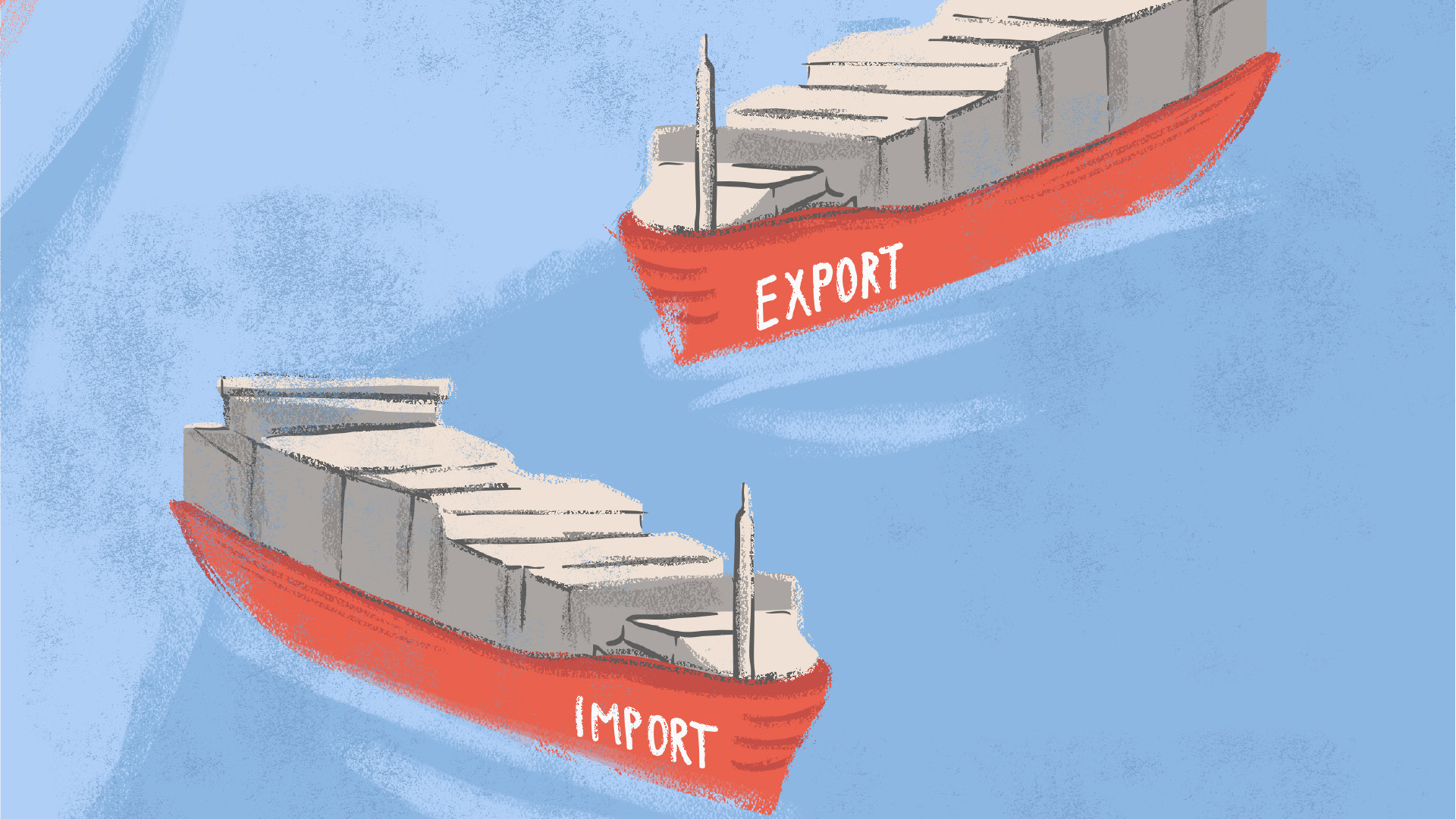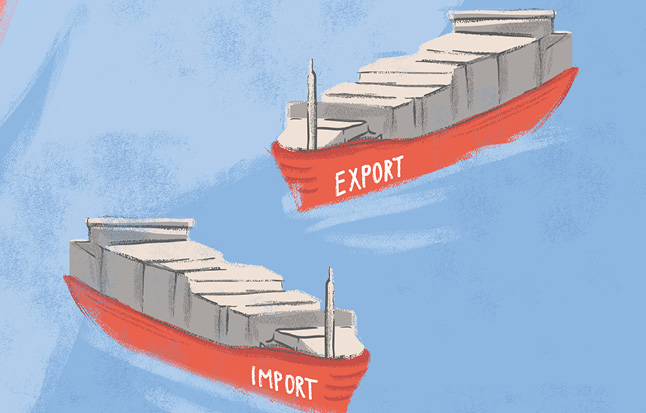- Arbitration
- Banking & Finance
- Capital Markets
- Commercial
- Competition
- Construction & Infrastructure
- Corporate / Mergers & Acquisitions
- Corporate Services
- Corporate Structuring
- Digital & Data
- Dispute Resolution
- Employment & Incentives
- Family Business & Private Wealth
- Innovation, Patents & Industrial Property (3IP)
- Insurance
Find a Lawyer
Book an appointment with us, or search the directory to find the right lawyer for you directly through the app.
Find out more
The Technology Issue
Decoding the future of law
This Technology Issue explores how digital transformation is reshaping legal frameworks across the region. From AI and data governance to IP, cybersecurity, and sector-specific innovation, our lawyers examine the fast-evolving regulatory landscape and its impact on businesses today.
Introduced by David Yates, Partner and Head of Technology, this edition offers concise insights to help you navigate an increasingly digital era.


2025 is set to be a game-changer for the MENA region, with legal and regulatory shifts from 2024 continuing to reshape its economic landscape. Saudi Arabia, the UAE, Egypt, Iraq, Qatar, and Bahrain are all implementing groundbreaking reforms in sustainable financing, investment laws, labor regulations, and dispute resolution. As the region positions itself for deeper global integration, businesses must adapt to a rapidly evolving legal environment.
Our Eyes on 2025 publication provides essential insights and practical guidance on the key legal updates shaping the year ahead—equipping you with the knowledge to stay ahead in this dynamic market.
The leading law firm in the Middle East & North Africa region.
A complete spectrum of legal services across jurisdictions in the Middle East & North Africa.
-
Practices
- All Practices
- Banking & Finance
- Capital Markets
- Commercial
- Competition
- Construction & Infrastructure
- Corporate / Mergers & Acquisitions
- Corporate Services
- Corporate Structuring
-
Sectors
-
Country Groups
-
Client Solutions
Today's news and tomorrow's trends from around the region.
17 offices across the Middle East & North Africa.
Our Services
 Back
Back
-
Practices
- All Practices
- Banking & Finance
- Capital Markets
- Commercial
- Competition
- Construction & Infrastructure
- Corporate / Mergers & Acquisitions
- Corporate Services
- Corporate Structuring
- Digital & Data
- Dispute Resolution
- Employment & Incentives
- Family Business & Private Wealth
- Innovation, Patents & Industrial Property (3IP)
- Insurance
- Intellectual Property
- Legislative Drafting
- Private Client Services
- Private Equity
- Private Notary
- Projects
- Real Estate
- Regulatory
- Tax
- Turnaround, Restructuring & Insolvency
- Compliance, Investigations and White-Collar Crime
-
Sectors
-
Country Groups
-
Client Solutions

- Law Firm
- /
- Insights
- /
- Law Update
- /
- September 2019
- /
- Highlights on Customs Transactions
Highlights on Customs Transactions
Omar N. Omar - Partner, Head of Transport & Insurance - Insurance / Shipping, Aviation & Logistics
Sakher Alaqaileh - Senior Counsel - Shipping, Aviation & Logistics
Bassam Al Azzeh
 As the UAE does not have its own customs law, like all other GCC states, it applies the Common Customs Law No. 85 of 2007 of the GCC States (the ‘Common Customs Law’). The Common Customs Law applies to all commodities crossing the customs line, at the points of importation or exportation. The commodities imported into the country are subject to the customs dues as specified in the Customs Tariff issued pursuant to the Common Customs Law. Any procedures, guides, laws or regulations issued/implemented in the UAE regarding customs are all subject to the Common Customs Law.
As the UAE does not have its own customs law, like all other GCC states, it applies the Common Customs Law No. 85 of 2007 of the GCC States (the ‘Common Customs Law’). The Common Customs Law applies to all commodities crossing the customs line, at the points of importation or exportation. The commodities imported into the country are subject to the customs dues as specified in the Customs Tariff issued pursuant to the Common Customs Law. Any procedures, guides, laws or regulations issued/implemented in the UAE regarding customs are all subject to the Common Customs Law.
Import and Export Transactions
Dubai is one of the main trade hubs worldwide and many companies choose Dubai as the centre for their trade transactions for many reasons. One of these reasons is the friendly online portal (‘Mersal II’) created by Dubai Trade. The portal allows users to handle the clearance process for any imported or exported goods online. Below is a brief overview of the necessary procedures to be followed by companies planning to import into or export from the UAE.
The company that wishes to import/export products to or from the UAE must be established in the UAE, and hold a valid commercial licence. The commercial licence is issued by either a local onshore authority or a free zone authority depending on where the company is established. In addition, the company must obtain a Business Code (which allows the company to import and export to and from UAE).
For a company to obtain a Business Code, specific online steps should be followed. Thereafter, the company or its clearing agent must open a customs account through the Dubai Trade Portal: www.dubaitrade.ae; after paying a minimal fee and submitting the following documents:
- copy of the company’s trade licence; and
- copy of the ID of the authorised person.
This account is subject to the approval of the Dubai Customs Authority. Once the customs account is approved, the company can proceed with import and export transactions once the required documents have been submitted.
The Required Documents for Importation and Exportation
The documents required for the customs declaration are not expressly defined in the Common Customs Law however, established practice makes it clear that the following documents are required regarding the import/export of goods:
(a) Importation
- Bill of Lading/Airway Bill;
- Commercial Invoice;
- Packing List;
- Certificate of Origin; and
- Special approval letters such as approval from Telecommunications Regulatory Authority (TRA), Emirates Authority for Standardization and Metrology (ESMA) or Dubai Municipality (only upon importing the products to the local market for trading purposes).
Importers in Dubai are granted 14 days in order to submit the original copies, or they may pay a guarantee of around 1,000 AED until they submit the original copies.
(b) Exportation
- Commercial Invoice;
- Customs declaration form processed through the system of Mersal II;
- Bill of Lading/Airway bill; and
- Packing List.
HS-Codes
The HS-Code (the ‘Harmonized Coding System) is an international standardised system of names and numbers for classifying goods.
The HS-Code is a significant element in the importation/exportation process because it gives the importer/exporter an indication regarding the required special approvals for importation, the applied customs tariff and the applied tax; if any such excise tax is to be applied or even if the product is prohibited. The importer/exporter should be aware if the product requires a special approval from the relevant authorities as some products require an approval (as a requirement for importing or exporting).
Verifying/classifying the HS–Code for a product will be necessary in order to confirm if any approvals are required from the relevant authorities. Both the verification and the classification process require a specific procedure to be followed before the Customs Authority. New codes should be approved by the Federal Customs authorities, the GCC Customs authorities and the World Customs Organizations (‘WCO’). The HS-Codes are updated every three years by the WCO, and the UAE updates its database accordingly, therefore importers should verify if there are any changes to the used codes in order to avoid the accusation of a mis-declaration by the UAE Customs authority in line article (47), (141-142) of the GCC Customs Law.
Penalties imposed for Breaching the Importation and Exportation Requirements
- as per Article (145) of the Common Customs Law, violating the restrictions of an import and export transaction is considered to be ‘smuggling’ which is an offence punishable by: confiscation and destruction of the goods;
- imposition of a fine (up to double the value of the Customs Duties on the goods in question);
- confiscation of the means of transportation and the tools and materials used in smuggling, excluding public means of transportation such as ships, aircraft, trains and public vehicles, unless they are intended or hired for smuggling purposes; and/or
- the penalty may be doubled if the offence is repeated.
The Common Customs Law includes imprisonment charges (up to three years) however this is rarely enforced.
Customs Audit
The Customs Audit is an important procedure handled by the Customs Audit Department (the ‘Department’). Through this procedure the Customs Authority can investigate any company’s import and/or export transactions and verify whether the company is breaching the Common Customs Law and impose the relevant penalty.
The Department can request any company at any time to provide a stock declaration together with supporting documents in order to track the import and/or export transactions so as to verify whether there has been any violation. The company should be careful in providing incorrect or inaccurate declarations because the Department will examine and cross-reference the information and the supporting documents with available data in the Department’s records.
In the event of a violation, the Department will follow specific procedures and a fine in the range of 10 percent (over the total value of the goods/products/commodities) will be imposed in addition to the applicable customs duty which fall in the range of up to 100 percent.
The offending company has the opportunity to reduce its fines by following specific procedures and subject to the Department’s approval.
As the fines can (in some cases) be high, it is advisable to consult specialised customs’ lawyers once a fine is issued, so as to explore ways to minimise the penalty where possible.
The Customs Common Law, regulations and practices are very connected elements not only to the trade but also to any company that deals with or handles import and export transactions. From this perspective, companies should seek consultation from the experts in this field and to be aware of the relevant laws, regulations, and practices in order to avoid violating the law and consequently the potentially high fines which may be levied in some cases.
Al Tamimi & Company’s Transport & Insurance team regularly advises on Customs & Logistics. For further information please contact Sakher Al Aqaileh (s.alaqaileh@tamimi.com) or Bassam Al Azzeh (b.alazzeh@tamimi.com).
Stay updated
To learn more about our services and get the latest legal insights from across the Middle East and North Africa region, click on the link below.


